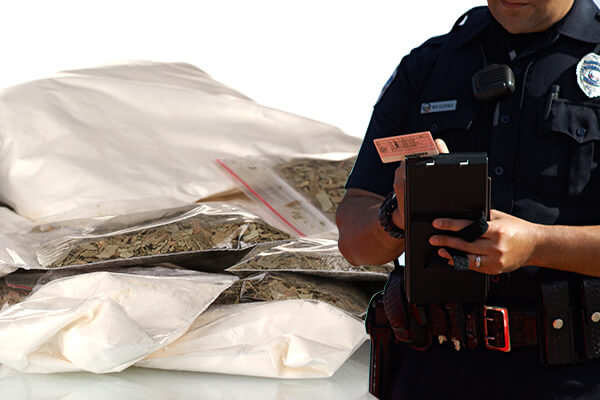Possession is only one of the several types of controlled substance charges, with the others being manufacturing/delivery, paraphernalia, dealing, trafficking, and conspiracy.
- Possession simply refers to ownership of an illegal substance.
- Manufacturing naturally refers to the creation of controlled substances. Meth labs and marijuana grow operations are the most common targets for manufacturing charges, since they tend to be the easiest to produce independently. Drug precursors are also carefully monitored, so you can be charged with intent to manufacture for buying bulk amounts of substances that are known to be used in the creation of drugs.
- Delivery is also straightforward, referring to the transfer of a controlled substance from one individual to another. Possession with an intent to deliver is a very popular charge and is commonly used against individuals that simultaneously possess drugs and the equipment necessary to transfer them, such as scales.
- Paraphernalia refers to items that are related to the creation, transportation, and use of drugs. Paraphernalia charges are generally limited in power, with a first offense paraphernalia possession charge in Texas resulting in no jail time and a fine of no more than $500. Repeat offenses can lead to increasing penalties, as can selling paraphernalia. Particularly high penalties can be imposed if you are charged with selling drug paraphernalia to a minor, in which case you are faced with between 180 days and 2 years in jail and a fine of no more than $10,000.
- Conspiracy refers to planning possession or delivery, specifically with other individuals. You can be charged with conspiracy even if you never actually possessed or delivered the drug.
Delivery & Manufacture Penalties
Punishments are determined by the type of controlled substance or drug the offender manufactured (Group 1 – 4 penalty groups; narcotics, depressants, stimulants, hallucinogens) and the amount of drugs or substances involved. A felony controlled substance offense includes up to 99 years in prison and maximum fines of $250,000. Manufacture and delivery of narcotics substances (e.g. opium, fentanyl, codeine, morphine, or hydrocodone) would probably involve greater punishments than manufacture and delivery of depressants (e.g. barbiturates or chloral hydrate.
Paraphernalia Penalties
At the low end of the spectrum, first offense paraphernalia possession will result in a class C misdemeanor (a fine no more than $500). Second offense paraphernalia possession results in enhanced charges. Selling paraphernalia is a class A misdemeanor (up to a year in jail and/or a fine of no more than $4,000). Selling paraphernalia to a minor is a state jail felony (180 days to 2 years in a state jail and a fine of no more than $10,000).
Federal laws may also be involved – Distribution of drugs/controlled substances to persons under 21 years of age can mean harsher penalties (by factors of two to three times) penalties under federal laws. Manufacture, distribution, and dispensary of drugs/controlled substances under federal laws include a maximum fine of $8 million and up to life in prison with the possibility of parole.
As you might expect, the severity of charges increases dramatically as both the quantity and danger of the controlled substance increases. While you might only spend a few years in jail and be fined a few thousand dollars for possessing a small amount of any substance, you could easily spend decades in jail and be fined tens of thousands of dollars for possessing very large quantities of any controlled substances.
Contact the Law Offices of The Peugh Law Firm
Have you or someone you know been charged with manufacturing, delivery, or dealing of a controlled substance in Denton County, TX? You need a tough, smart Denton criminal defense attorney on your side. The Peugh Law Firm is prepared to fight for you. Contact us at (940) 566-0271 to schedule a free, no obligation consultation regarding your case





